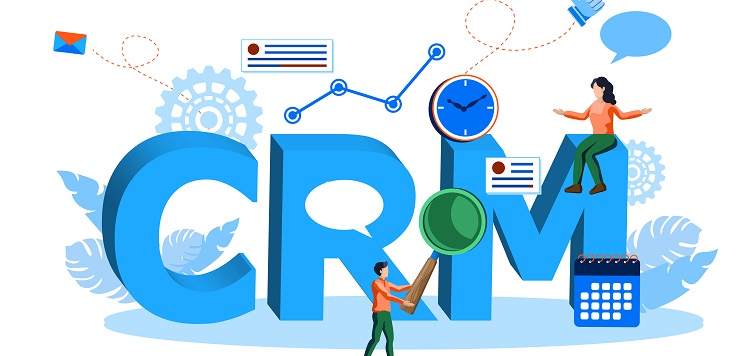In today’s business landscape, data is key to making informed decisions, driving growth, and staying ahead of the competition. However, with data scattered across disparate systems, manual entry, and siloed teams, extracting the value from this data can be challenging. One solution to this problem lies in integrating all company data onto a single measurement tool within the Customer Relationship Management (CRM) system. In this article, we will explore the importance of a single measurement tool built natively on the CRM system and how it can improve process efficiency, reduce human errors, generate insights, and align teams towards common goals.
Integrating Company Data to Minimize Manual Errors
The manual entry of data across disparate systems can be time-consuming, prone to errors, and reduces process efficiency. However, a single measurement tool within the CRM system can help reduce human errors significantly. By centralizing all data and allowing for real-time data entry, minimizing manual errors becomes a reality.
Improving Process Efficiency
A single measurement tool in the CRM system can help pinpoint bottlenecks that hinder process efficiency. The tool can continuously monitor processes and give insights as to where processes take too long or transitions take more time than needed. By identifying bottlenecks and streamlining processes, the tool improves the overall efficiency of the business.
Generating Reports with Meaningful Insights
With all company data in a single measurement tool, generating reports with meaningful insights becomes more manageable. The tool can combine various data sources to create reports that describe the buyer’s journey and track progress towards objectives. This ability to generate reports with meaningful insights enables teams to make data-informed decisions and stay in tune with customer needs.
Reducing Human Error through a Measurement Tool Built Natively on CRM System Integrating Data from Multiple Sources
A natively built measurement tool in the CRM system can integrate multiple data sources accurately. By integrating these sources, the tool gives a more complete picture of the business and reduces dependencies on manual data entry.
Lowering Manual Data Entry
Manual data entry is not only time-consuming, but it is also prone to human errors. With a measurement tool built natively into the CRM system, manual data input is reduced drastically. Furthermore, the tool can automatically enter data into the CRM system, eliminating human error and improving data accuracy.
A CRM system is designed to be the source of truth for customer data, making it an ideal platform to serve as a central hub for integrating business data. By extending this source, it becomes a one-stop-shop for all data, allowing stakeholders across the organization to access it at any time.
Seamless Customer Transition through Alignment on Key Metrics
When a sales team closes a deal, they will hand over the customer relationship to the customer success team. However, this transition can be challenging if there is no alignment on key metrics. A single measurement tool that provides shared data truth can help the sales and customer success teams operate more efficiently by seamlessly transitioning customers from the sales team to the customer success team.
By creating a shared source of data truth, everyone will have access to the same data. This access will create the necessary alignment between departments, ultimately improving the customer experience and increasing customer satisfaction.
Marketing Insights through Tracking Leads or Accounts across Buying Journeys & Effective Campaign Measurements
A measurement tool in CRM, which allows marketing to track leads or accounts across the purchasing journey provides insight into which campaigns are most effective in generating revenue. This insight enables marketers to allocate budget dollars accordingly.
Budget Allocation
Effective budget allocation is crucial to the success of a business. With a measurement tool built natively on the CRM system, businesses can allocate budgets more effectively for future campaigns.
Improving Process Efficiency
Integrating a single measurement tool in the CRM instance can help improve process efficiency by identifying bottlenecks such as handoff issues. By highlighting these bottlenecks, businesses can optimize their processes and enhance efficiency.
Real-time Optimization of Budgets and Team Productivity
A measurement tool that provides insights into investment and process efficiency allows businesses to optimize budgets and team productivity in real-time. This real-time optimization is essential in today’s competitive business landscape.
Aligning Teams and B2B Organizations around Key Metrics
Cohesively Monitoring Progress towards Objectives
A single measurement tool in the CRM can align teams and the B2B organization around key reporting metrics that monitor progress towards objectives cohesively. This alignment ensures that each department is in tune with the business objectives, which improves the chances of reaching them.
In conclusion, a single measurement tool that is built natively on the CRM system is essential to gaining insights, reducing human error, improving process efficiency, and aligning teams towards common goals. The benefits that this tool provides cannot be ignored, and businesses that employ it will have a competitive advantage over their counterparts that do not. By ensuring that all data is collected and monitored on a single measurement tool within the CRM system, processes are streamlined, insights are gained, and teams are aligned, which ultimately benefits the business as a whole.

